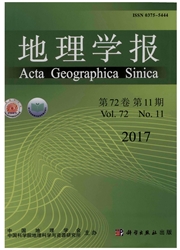

 中文摘要:
中文摘要:
2008年全球金融危机使中国出口增速放缓,也给中国提升出口贸易的质量效益带来了机会。利用2007年和2010年中国30省区市区域间投入产出表计算了中国和省域以及国外在中国出口中分享的单位出口价值份额。研究结果发现,金融危机后在中国单位出口中,全国分享的经济收益整体有所提升,进一步从省域格局来看,分享中国单位出口经济收益较高的省域主要分布在东部沿海地区,而从出口部门来看,全国带有技术含量的制造业分享的经济收益在2007~2010年增长最多,而依赖资源和劳动力投入的低端产品制造分享的经济收益下降最多,沿海出口大省仍然是分享制造业出口价值份额最主要的地区,地理区位依旧是出口贸易最有利的条件之一。尽快淘汰落后产能,推动产业升级转型,加大科技含量,才能促使"中国制造"尽快完成向"中国智造"转变。
 英文摘要:
英文摘要:
Vertical specialization is a major form in which China take part in the international trade. In the meantime, Chinese provinces insert into upstream and downstream industry of national exports and share values. China has become the factory of the world of low-end product for a long time because of the high input of resource and labor and low value-added in Chinese per unit export, promoting the quality of exports is a basic requirement of Chinese sustainable foreign trade. Chinese export growth falls in 2008 as global financial crisis,which is a transition opportunity for Chinese export. That China has the shares of global value in its per unit export and whether the mode of the factory of the world has changed are the topics of concern. This article calculated China's share value and Chinese provincial share values of Chinese per unit export based on Chinese 30 provincial multi-regional input-output tables in 2007 and 2010. The results show that China's sharing the value has increased since global financial crisis. During the period from 2007 to 2010, the coastal provinces have the high share values, the high technology manufactures have the largest increases, and the manufactures which depend on the input of the resource and labor have the largest decreases. The coastal provinces have shared the most value of manufactures. Geographic location is one of the best factors of export trade. Closing down backward production and promoting industrial upgrading and transforming are helpful for the change from"Made in China"to"Made with Wisdom".
 同期刊论文项目
同期刊论文项目
 同项目期刊论文
同项目期刊论文
 期刊信息
期刊信息
